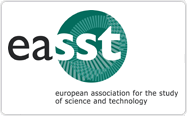Five Framings - One Entity? The Political Ethics of Human Embryonic Stem Cells
DOI:
https://doi.org/10.23987/sts.55186Abstract
Following their initial derivation in 1998, human embryonic stem cells have been presented in five dominant framings. The original framings as a breakthrough in basic research and a medical hope were both intended and orchestrated to anticipate and overrule the old bioethical concerns. The third framing nonetheless questioned the legitimacy of the bare laboratory research from day one. Two subsequent framings presented adult stem cells as Nature’s own solution and cloning as Mankind’s technofix solution, i.e. as alternative points of passages to the ethical concerns, but they did not succeed to regain the agenda and the public discourse. The five framing are thus elements of a still unclosed encounter over-determined by (bio)politics. Finally the framing of “facts” of nature, technological “artefacts” and social “construct” is discussed in the light of recent interpretations of stem cells as “state” rather than as “entity”, thus indicating that no single entity is to be found behind the five framings. *Key words*: bioethics, biotechnology, stem cellsDownloads
Published
2005-01-01
Issue
Section
Research Papers
How to Cite
Nielsen, T.H. (2005) “Five Framings - One Entity? The Political Ethics of Human Embryonic Stem Cells”, Science & Technology Studies, 18(1), pp. 30–51. doi:10.23987/sts.55186.





